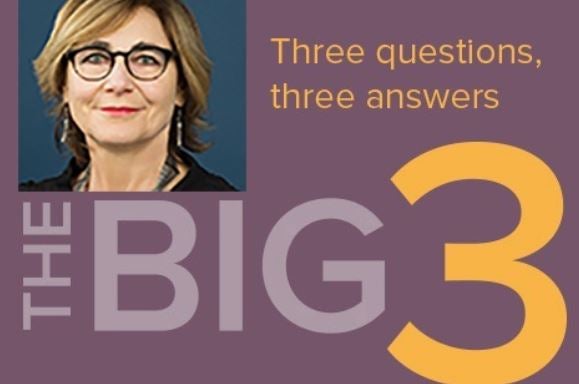Separation at the border
On June 27, our colleague Chris Sweeney in the Harvard Chan Office of Communications interviewed Harvard FXB’s director of research, Professor Jacqueline Bhabha, on family separation for their feature Three Questions. Below is an excerpt from the piece, with one question and answer:
In all of your years working on migrant issues around the world, have you ever seen a similar policy enacted?
I can’t think of a contemporary example in peacetime where a government has willfully separated parents from children in this way without any kind of criminal charges or national security concern. We have examples from last century during the two world wars when families were ripped apart and those are now considered some of the absolute darkest chapters in history.
What is also deeply concerning is the level of chaos surrounding how this was implemented and managed. I have been in touch with consul generals from Mexico and some Central American countries who are trying to get information on where these children are, and there doesn’t seem to be a central registrar or even a complete list. There is concern that the administration has been cavalier at best in relation to its moral and legal obligations to ensure children are protected from deep and possibly enduring trauma. It is hard to imagine the enormity of a situation where tiny children are separated from their primary caregiver with no system in place for ensuring prompt reunification. I fear that reunification is going to be a chaotic, protracted and a hit-or-miss process. Some parents, particularly those deported prior to reunification, may have enormous difficulties ever reestablishing contact with their children. This has been the legacy of previous deportation raids where parents have been rounded up at work without prior notice, while their children are in day care or school. Their children have ended up in the foster care system.
Read the rest here.
Migrant family separations could mean lasting trauma for kids
The Harvard Chan Office of Communications also described a powerful June 19 Greater Boston WGBH segment on the issue, which included a panel with Professor Bhabha:
Children separated from their parents along the U.S.-Mexico border as part of the Trump Administration’s “zero tolerance” policy could face trauma that lasts throughout their lives, according to human rights expert Jacqueline Bhabha of Harvard T.H. Chan School of Public Health.
Bhabha, professor of the practice of health and human rights at Harvard Chan School’s FXB Center for Health and Human Rights, was interviewed June 19, 2018 on the WGBH show “Greater Boston.” She told host Jim Braude that she thinks the term “child abuse” is an apt description of the Trump Administration’s family separation policy.
Read more and also find a link to the television show which included Heather Pérez, a legal fellow and detention attorney with the PAIR Project; and Dr. Louise Ivers, executive director of Massachusetts General’s Center for Global Health and associate professor at Harvard Medical School.
See also an interview with Professor Jack Shonkoff on toxic stress and children at the border.
Doors for Refugees Close as Displaced Population Soars, U.N. Says
The New York Times interviewed Professor Bhabha as part of their coverage of the UN’s annual report on refugees, released on June 20 World Refugee Day. Among other issues, Professor Bhabha spoke about the decisions of parents throughout the world to migrate with their children or to send older children off on their own:
…The number of unaccompanied children partly reflects parental desperation. They are resigned to sending them away in the hope of better opportunity elsewhere — even if that means families are torn apart, refugee experts said.
Parents are “not being careless about the decision,” said Jacqueline Bhabha, a professor at Harvard’s public health school….
Read more

